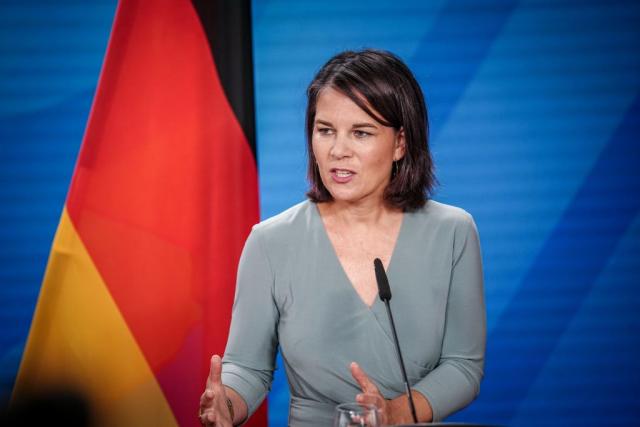German Foreign Minister: NATO is “central anchor of security” in Europe
Calling Russia's war against Ukraine the "greatest-ever threat to peace in Europe," German Foreign Minister Annalena Baerbock has highlighted the alliance's importance in maintaining peace and security in Europe

In an interview with German public radio broadcaster Deutschlandfunk, German Foreign Minister Annalena Baerbock said, “NATO is a central anchor of security in Europe.”
According to DW, Baerbock said that Russia’s war of aggression against Ukraine posed the greatest-ever threat to peace in Europe.
She advocated for “resolute support of Kyiv,” asserting that “this was the only way to defend freedom and democracy.”
The German foreign minister expressed support for NATO Secretary-General Jens Stoltenberg’s proposal to have aid for Ukraine centrally coordinated by the alliance.
A ministerial meeting of the NATO-Ukraine Council occurs on April 3-4 in Brussels at the headquarters of the North Atlantic Alliance. During this two-day meeting, NATO foreign ministers will reportedly mark 75 years since the signing of the North Atlantic Treaty in Washington on 4 April 1949, which established the transatlantic political and military alliance.
DW’s report highlights the historical context, noting that “NATO began with 12 members from North America and Europe and was founded in response to growing fears that the Soviet Union posed a military threat to Western Europe.” Currently, the alliance comprises 32 members, with Finland and Sweden joining following Russia’s invasion of Ukraine in February 2022.
Ukrainian Foreign Minister Dmytro Kuleba, set to meet with NATO diplomats, told Reuters that he would “press them [NATO diplomats- ed.] to provide more Patriot air defense systems to protect against Russian missile attacks.”
“Partners did provide us with their different (air defense) systems, we appreciate that, but it’s simply insufficient, given the scale of the war,” Kuleba said, highlighting that the partners have more than 100 Patriot systems in their arsenals.
According to DW’s correspondent Alexandra von Nahmen, although NATO has scored many successes in its 75-year history, “now it confronts new challenges because of China’s increasing assertiveness and Russia’s invasion of Ukraine.”
“The question of how to support Ukraine into the future was the biggest issue needing to be tackled by the alliance at this week’s summit,” she said.
Read also:
- Kuleba to NATO: allies are not giving enough air defense
- France’s defense chief Lecornu breaks 1.5-year silence, calls Russia’s Shoigu
- Why donations to the Ukrainian army are crucial for victory
- Zelenskyy to UN: Russia understands nothing but force



